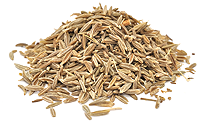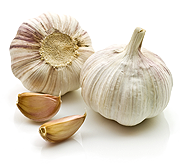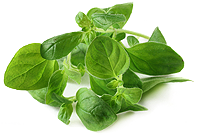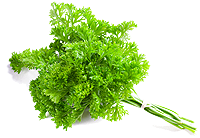Cinnamon
Cinnamon has a formidable reputation as a health-giving compound, and its uncanny ability to moderate blood sugar. Cinnamon also contains anthocyanin's, which improve capillary function and phytochemicals eugenol and geraniol, which can help combat candida. Candida is the overgrowth of yeast in our body system that can wreak havoc and cause so many problems. Cinnamon is also really great for digestive function, reducing blood sugar and lowering LDL, the bad cholesterol. In addition, compounds in cinnamon called catechins help relieve nausea. I use cinnamon every day in my morning smoothie and it makes it taste even better.
 Cumin
Cumin
Cumin is an important medicinal herb, which is used in many Arabian, Asian and African countries, and is a natural remedy for a whole range of diseases, especially allergies. In Indian medicine, cumin is considered to be a cool herb and helps to reduce heartburn and improve digestion.
 Garlic
Garlic
Garlic is lipid-lowering, anti-thrombotic, anti-blood coagulation, anti-hypertensive, antioxidant, antimicrobial, antiviral and anti-parasitic global remedy. Garlic is accepted even by conventional, traditional medicine as an agent for lowing cholesterol. Garlic can also reduce plaque, making it a powerful agent for cardiovascular health. To understand how import this is, consider that many heart attacks and strokes are believed to be caused by spontaneous clots in the blood vessels. The anticoagulant effect of garlic is an important health benefit, plus it just makes food taste so great!
Ginger
Ginger is well known as the “universal remedy” and this herb contains a whole pharmacy of ingredients with multiple health benefits. Many people are already aware of ginger’s great ability to soothe an upset stomach and end nausea, and by simulating saliva, it may also aid in digestion. The active ingredients in ginger are antioxidants and may be useful in a nutritional program for arthritis. Ginger can also boost the immune system, and is an effective antimicrobial and antiviral agent. One benefit that has been noted for thousands of years is ginger’s ability to improve circulation, and can even be been given as a remedy for people with cold hands and feet.
 Oregano
Oregano
Oregano is rich in a host of nutrients, including calcium, magnesium, zinc, iron, potassium, copper, boron, manganese, vitamin C, vitamin A, and niacin. Oregano also seems to be the herb with the highest antioxidant activity. The medicinal parts of this wondrous plant are contained in the oil extracted from the leaves, or from the herb itself picked during the flowering season and eaten fresh or dried. Traditionally, this herb’s oil has also been used as a digestive aid, and because of its anti-inflammatory properties to support joint function.
Parsley
 Parsley, the world’s most popular herb, is known primarily for its detoxification and deodorizing properties. Its ability to freshen breath and detoxify the system comes from the same substance that makes it green, chlorophyll. Dozens of studies have confirmed the ability of chlorophyll to purify and rejuvenate, and it has been shown to stop bacterial growth in wounds. And as if that isn’t enough, parsley deodorizes and counters toxins, deactivates many carcinogens and builds blood, renews tissues and counteracts inflammation. The National Cancer Society, which has invested millions of dollars researching the anticancer potential of plant foods, found that parsley is among a select group of about a dozen foods with the highest anticancer activity.
Parsley, the world’s most popular herb, is known primarily for its detoxification and deodorizing properties. Its ability to freshen breath and detoxify the system comes from the same substance that makes it green, chlorophyll. Dozens of studies have confirmed the ability of chlorophyll to purify and rejuvenate, and it has been shown to stop bacterial growth in wounds. And as if that isn’t enough, parsley deodorizes and counters toxins, deactivates many carcinogens and builds blood, renews tissues and counteracts inflammation. The National Cancer Society, which has invested millions of dollars researching the anticancer potential of plant foods, found that parsley is among a select group of about a dozen foods with the highest anticancer activity.
Rosemary
Rosemary's medicinal and fragrant properties have been used by herbalists and in aromatherapy for hundreds of years. Some of the health-promoting benefits of rosemary are derived from two of its properties, caffeic and rosmarinic acids, in addition to antioxidants like vitamin E and assorted flavonoids. The acids are anti-inflammatory, and may be helpful in reducing the inflammation that contributes to asthma, liver disease and heart disease. Recent research has been conducted on rosemary’s potential for inhibiting cancers such as breast, colon and skin cancers. Rosemary also contains several compounds that prevent the breakdown of acetylcholine, an important neuro-transmitter in the brain and one that is necessary for memory and healthy brain function. Besides being used widely as a culinary herb, rosemary frequently lends its distinctive fragrance to soaps and cosmetics.
Turmeric
Turmeric is part of the healing systems of India, China and the Polynesian Islands. One explanation is its phenomenal anti-inflammatory properties. One of turmeric’s traditional uses has been for the treatment of arthritis due to its ability to lower inflammation. It can also be useful to relieve muscle pain, as well as joint inflammation, and even carpal tunnel syndrome. Turmeric works by exerting its anti-inflammatory effect by lowering histamine levels. Turmeric is also one of the easiest spices to use. It has a very pleasing taste and a beautiful color, and it tastes delicious on almost any food.
